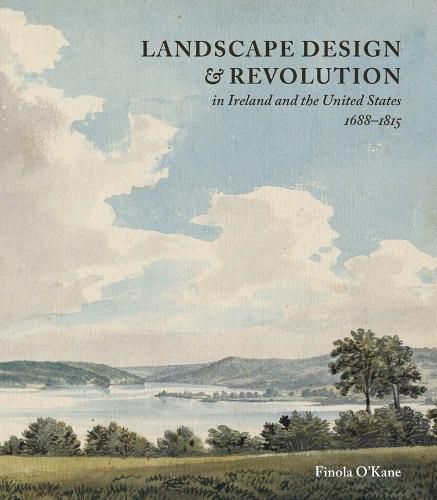Readings Newsletter
Become a Readings Member to make your shopping experience even easier.
Sign in or sign up for free!
You’re not far away from qualifying for FREE standard shipping within Australia
You’ve qualified for FREE standard shipping within Australia
The cart is loading…






Explores how revolutionary ideas were translated into landscape design, encompassing liberty, equality, improvement and colonialism
Spanning the designed landscapes of England's Glorious Revolution of 1688, the American Revolution of 1776 and the Irish rebellion of 1798, with some detours into revolutionary France, this book traces a comparative history of property structures and landscape design across the eighteenth-century Atlantic world and evolving concepts of plantation and improvement within imperial ideology. Revolutionaries such as Jean-Jacques Rousseau, George Washington, Arthur Young, Lord Edward FitzGerald and Pierce Butler constructed houses, farms and landscape gardens-many of which have since been forgotten or selectively overlooked. How did the new republics and revolutionaries, having overthrown social hierarchies, translate their principles into spatial form?
As the eighteenth-century ideology of improvement was applied to a variety of transatlantic and enslaved environments, new landscape designs were created-stretching from the suburbs of Dublin to the sea islands of the state of Georgia. Yet these revolutionary ideas of equality and freedom often contradicted reality, particularly where the traditional design of the great landed estate-the building block of aristocratic power throughout Europe-intersected with that of the farm and the plantation.
Distributed for the Paul Mellon Centre for Studies in British Art
$9.00 standard shipping within Australia
FREE standard shipping within Australia for orders over $100.00
Express & International shipping calculated at checkout
Stock availability can be subject to change without notice. We recommend calling the shop or contacting our online team to check availability of low stock items. Please see our Shopping Online page for more details.
Explores how revolutionary ideas were translated into landscape design, encompassing liberty, equality, improvement and colonialism
Spanning the designed landscapes of England's Glorious Revolution of 1688, the American Revolution of 1776 and the Irish rebellion of 1798, with some detours into revolutionary France, this book traces a comparative history of property structures and landscape design across the eighteenth-century Atlantic world and evolving concepts of plantation and improvement within imperial ideology. Revolutionaries such as Jean-Jacques Rousseau, George Washington, Arthur Young, Lord Edward FitzGerald and Pierce Butler constructed houses, farms and landscape gardens-many of which have since been forgotten or selectively overlooked. How did the new republics and revolutionaries, having overthrown social hierarchies, translate their principles into spatial form?
As the eighteenth-century ideology of improvement was applied to a variety of transatlantic and enslaved environments, new landscape designs were created-stretching from the suburbs of Dublin to the sea islands of the state of Georgia. Yet these revolutionary ideas of equality and freedom often contradicted reality, particularly where the traditional design of the great landed estate-the building block of aristocratic power throughout Europe-intersected with that of the farm and the plantation.
Distributed for the Paul Mellon Centre for Studies in British Art